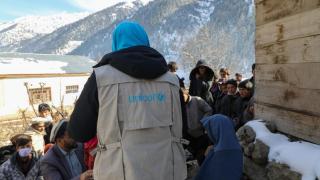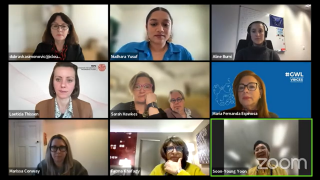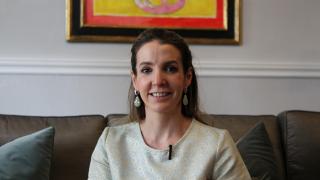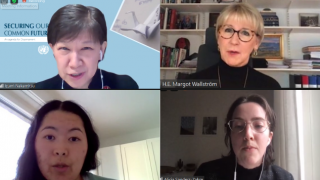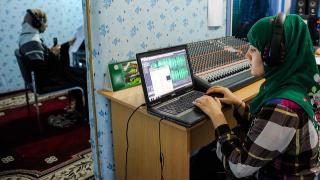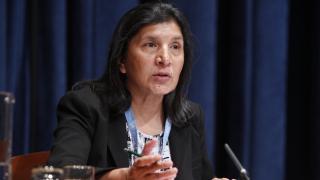
Over the course of the last two weeks, the UK has been assessed by the UN Special Rapporteur on the causes and consequences of violence against women.
Rashida Manjoo - the current mandate holder - was here at the invitation of the UK Government, and met with various Government departments, visited Scotland, Wales and Northern Ireland and consulted with civil society.
Ms Manjoo presented her initial findings at a press conference in London yesterday. The Special Rapporteur said that "Despite many positive developments, violence against women remains a pervasive challenge throughout the United Kingdom." Her observations included:
- Positive developments at the national level, including annual action plans for the prevention of violence against women
- A commitment to ratify the Council of Europe Convention on preventing and combating violence against women and domestic violence (Istanbul Convention)
- Various initiatives and campaigns to tackle manifestations of violence, such as trafficking, forced genital mutilation, domestic abuse and sexual harrassment
- Worrying statistics on the levels of violence against women: in England and Wales, 30 per cent of women reported having experienced domestic abuse and 77 women were killed by their partners or ex-partners in 2012/13 (according to the Home Office and Office for National Statistics)
- Austerity measures have had a disproportionate impact on women, and their access to justice has been restricted due to changes to legal aid
- Concerns about the treatment of women in detention, and the regret that, despite repeated requests, access to Yarl's Wood immigration detention centre was not granted
An official report of the visit will be presented to the UN Human Rights Council at its next session in June.
At the start of her visit, Ms Manjoo gave evidence in Parliament to the Joint Committee on Human Rights, which is currently undertaking its own inquiry into violence against women and girls. Speaking generally about the issue (and not specifically in reference to the UK), the Special Rapporteur described violence against women as "the most pervasive human rights violation in the world".
She went on to explain that the lack of any legally-binding international treaty on violence against women severely constrains the ability to hold states to account in their responsibility to protect women from abuses. Whilst the UN agreed a Declaration on the issue in 1993, there has since been little appetite from member states to upgrade this commitment to a recognised human rights treaty.

